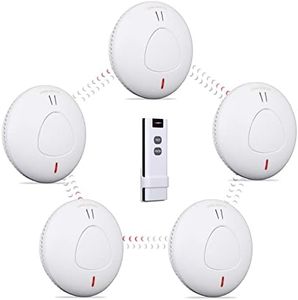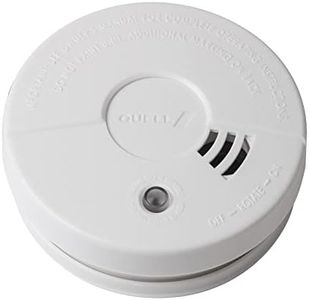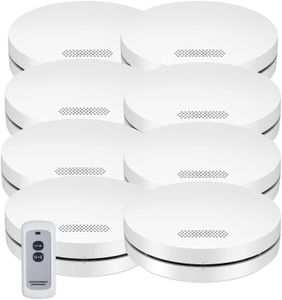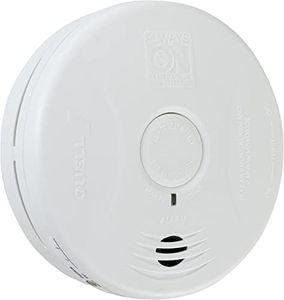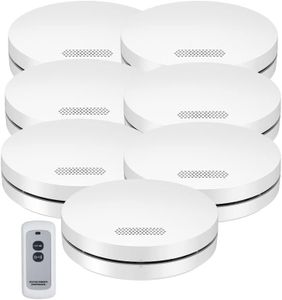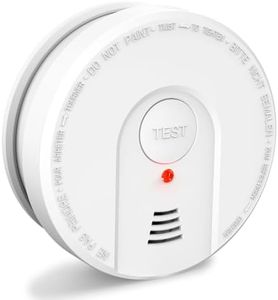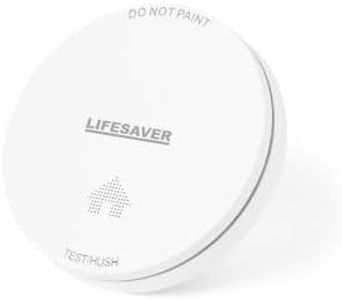We Use CookiesWe use cookies to enhance the security, performance,
functionality and for analytical and promotional activities. By continuing to browse this site you
are agreeing to our privacy policy
10 Best Battery Powered Smoke Alarm
From leading brands and best sellers available on the web.By clicking on a link to a third party's website, log data is shared with that third party.
Buying Guide for the Best Battery Powered Smoke Alarm
Choosing the right battery-powered smoke alarm is essential for keeping your home and loved ones safe. A smoke alarm detects the presence of smoke in the air and sounds a loud alarm to alert you of a potential fire, giving you valuable time to escape or take action. Since there are several features and technologies involved, it's important to understand what to look for to ensure you select the most effective and suitable device for your specific needs.Sensor TypeThe sensor type determines how the smoke alarm detects smoke or fire. The most common types are ionization and photoelectric sensors. Ionization sensors are generally quicker at detecting fast-flaming fires, while photoelectric sensors are better at sensing slow, smoldering fires. Some alarms combine both types for broader protection, known as dual-sensor alarms. To decide, think about your home layout and fire risk—dual-sensor offers the most comprehensive detection, while single-sensor alarms can be chosen if you have a known risk (such as kitchens prone to fast-flaming fires or bedrooms where smoldering fires might occur).
Battery LifeBattery life refers to how often you’ll need to change or recharge the alarm's batteries. Some alarms use standard replaceable batteries that need to be changed yearly, while others come with long-life sealed batteries lasting up to 10 years. For convenience and reliability, many people prefer sealed long-life batteries as you won’t need to remember annual changes, but replaceable batteries allow you to swap in fresh ones whenever needed. Consider your preference for maintenance—if you’d rather not think about the alarm for years, go for the 10-year battery.
Test and Hush FeaturesTest and hush features make living with your smoke alarm much easier. The test function lets you check, at any time, if the alarm is working properly, while the hush button can silence the alarm temporarily in case of false alarms from cooking or steam. If you want reassurance that your alarm is functional and don’t want the stress of dealing with unwanted alarms, look for these features. They’re especially useful in kitchens or near bathrooms where minor false triggers can occur.
InterconnectivityInterconnectivity means alarms can communicate with each other—if one detects smoke, all connected alarms will sound. Some battery-powered models offer wireless interconnectivity, so you don’t need wiring. This is especially helpful in larger or multi-story homes, making sure everyone hears the alarm, even if the danger starts in a distant room. If your home is big or it’s hard to hear alarms from other rooms, interconnectivity is a safety boost to consider.
Certifications and StandardsSafety certifications show that the alarm meets the required quality and reliability standards. Look for marks or labels indicating compliance with national or international safety standards. Choosing a certified smoke alarm means that it has passed independent tests and is trustworthy. Always favor alarms that clearly show these certifications to ensure you’re not compromising on safety.
